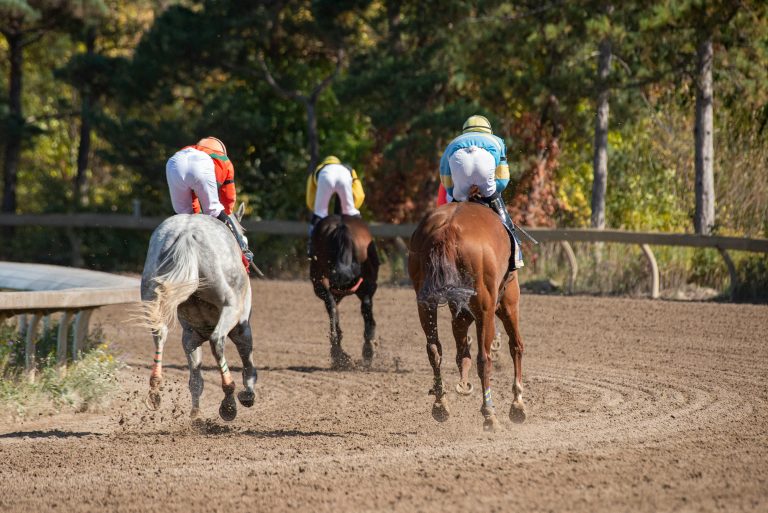The successful tipster bets in horse racing have made an incredible +£3,602 profit in recent months. The betting tipster market has grown bigger than most people imagine, with 10,000+ active tipsters and more than 100,000 winning tips shared monthly.
These numbers tell only part of the story. The best tipsters consistently deliver results, with horse racing experts hitting a 31% yearly strike rate. Tennis tipsters have achieved an amazing 65% success rate in the last month. A top golf expert’s +£1,600 profit shows you can profit from betting on any sport.
Let’s dive into the tipster betting industry’s inner workings and see why bookmakers watch these experts so carefully. You’ll discover the secrets that bookmakers don’t want you to know about betting success.
The Symbiotic Relationship Between Bookmakers and Tipsters
Bookmakers and tipsters engage in a sophisticated cat-and-mouse game that most punters never see. These two groups might seem like rivals, but they share a complex relationship that is changing the betting world.
How bookies monitor successful tipsters
Bookmakers use several advanced techniques to keep tabs on the best tipsters:
- They actively subscribe to tipster services to study their selection patterns and betting strategies as well as the tipster bets performance over time
- They monitor social media platforms where tipsters share predictions
- They analyze unusual betting patterns that could show a popular tip-making rounds
- They track and group customers who place similar bets at the same times to identify them as followers of the same tipster
“Compilers will quickly dismiss tipsters that don’t have any results that are verified, that don’t seem to have a clear strategy, and the ones with inflated ROIs beyond what they deem to be likely,” notes an industry insider. All the same, they respect and watch those with proven track records closely.
Why some bookmakers secretly hire tipsters
Many bookmakers hire top tipsters for strategic advantages, despite what most people think. This practice lets them:
Learn about market movements before they become widespread, which gives them time to adjust odds. On top of that, these hired tipsters help spot value bets that might become liabilities.
“Generally, compilers respect tipsters that appear to be compiling their own price further, before they eventually tip a selection,” reveals a former bookmaker employee. A compiler who knows the industry “would always use the tipsters to learn, if they had a great merit and history”.
The data exchange you don’t see
Bookmakers, platforms, and tipsters create an intricate web of hidden information flow:
Gambling companies track their website visitors secretly and share data without telling anyone. Tests found that 52 out of 150 gambling sites share data automatically. Betting companies use smart algorithms to analyze this information and build detailed profiles of their customers.
“Bookmakers operate with a different goal. They want to balance bets and ensure profit rather than predicting the correct result,” explains one industry expert. So they adjust odds based on betting patterns instead of actual outcome probabilities.
The biggest challenge for punters is that “bookmakers quickly adjust errors, leaving little room for long-term profit”. When a tipster beats the odds consistently, bookmakers adapt right away, which makes finding future value bets harder.
Why the Best Tipsters Don’t Advertise Their Services
Exceptional sports betting tipsters rarely promote their services online—a fact that puzzles many betting enthusiasts. These experts prefer to work behind the scenes, and with good reason.
Account limitations: The tipster’s biggest problem
Bookmakers don’t welcome winners. This creates a fundamental challenge for successful tipsters. They often find their accounts restricted or closed after being identified as profitable punters. One industry expert states, “If you are a successful sports punter, the chances are you have had one or more of your online betting accounts limited or closed down”. Professional tipsters face an impossible situation because their success stops them from placing bets.
Bookmakers use sophisticated methods to spot winning patterns. They track IP addresses, betting histories, and odd stake sizes. Following prominent tipster services raises immediate red flags. Bookmakers consider these patterns as signs of “professional” betting behavior.
The mathematics of diminishing returns
The law of diminishing returns presents another significant challenge that affects tipster effectiveness as their popularity grows. A tipster’s original selections might offer excellent value. However, the odds drop faster as more followers place similar bets.
One analysis shows that “With even modest volumes of money being placed on the same selections, followers will be lucky to get close to the quoted price before it collapses”. The tipster’s value to followers decreases as they become more successful and popular.
Where the top tipsters actually make their money
Top tipsters often move away from public tip-selling because of these challenges. Elite tipsters work within private betting syndicates. Some become odds compilers for bookmakers. Others run subscription services with limited followers to maintain betting value.
Less ethical tipsters make money through bookmaker affiliate programs. These deals create concerning conflicts of interest. Tipsters can earn “up to a 30% cut of the losses incurred by any customers they refer”. Anyone should be extremely cautious of tipsters who promote specific bookmakers with affiliate links.
The truth stands clear: heavily advertised tipster services rarely showcase the industry’s real experts. The best tipsters stay discreet to protect their edge. They know public attention ends up destroying their most valuable asset—knowing how to beat bookmakers consistently.
The Real Economics Behind Tipster Services
Money tells an interesting story in the tipster industry. You’ll find a fascinating economic ecosystem where profit comes from unexpected places. A closer look at these financial mechanics shows why many services keep running despite their questionable track records.
Subscription models vs. performance
Tipster services usually stick to one of three main subscription models:
- Flat-rate pricing: A single monthly fee, whatever the tip volume or success rate
- Tiered subscriptions: Different price points offer various levels of access
- Usage-based models: Payments tied to specific betting events
The gap between pricing and performance raises red flags. A former tipster puts it bluntly: “I would not support signing up to a paid tipster service, unless you are fully aware of what you are getting into”. This warning makes sense because research shows that successful tipsters lost money in all but five months during a year-long period.
The biggest problem lies with punters who don’t count subscription costs when they calculate profits. An industry insider points out that “Quite often, the subscription costs are not factored into punters P&L when assessing the success of a service”.
The affiliate marketing connection
A profitable affiliate marketing setup with bookmakers runs behind many tipster operations. These strategic collaborations can bring in “up to 40% per player” in lifetime commission. Tipsters get paid not just from subscriptions but also when their followers lose money at recommended bookmakers.
This setup creates a concerning conflict of interest. Tipsters might earn more from their followers’ losses than from giving winning picks. Sports betting affiliate deals are “often high-paying”. Payments come weekly, and withdrawal limits stay low.
Why losing tipsters stay in business
Poor performance doesn’t stop tipsters from running profitable businesses. Affiliate revenue brings in money no matter how good the tips are. The subscription model generates a steady income even during bad streaks.
There’s another reason these services thrive – the industry lacks transparency. Since “the majority of free betting tipsters are of very poor quality”, paid services look more legitimate. Tipsters who “work alongside bookmakers” to earn affiliate revenue stay financially stable regardless of their betting performance.
This economic picture shows why successful punters rarely sell tips – they simply don’t need to.
How Bookmakers Adjust Odds Based on Tipster Activity
Popular tipsters leave digital footprints that bookmakers actively monitor and respond to with their tipster bets history. This behind-the-scenes tracking dramatically affects tip values and ends up impacting your betting success.
Digital footprints of popular tips
Bookmakers use sophisticated systems to identify tipster activity. They track betting patterns when multiple accounts suddenly place similar bets, especially on previously quiet markets. As one industry source reveals, “Bookmakers will watch out for their bets being released and cut prices before taking too much money on them and risking excess exposure”. Odds compilers across the industry specifically monitor prominent tipsters like Hugh Taylor and Andy Holding and adjust prices immediately when their selections become public.
The timing factor in following tipsters
Valuable odds often disappear within minutes. A ground example shows this clearly:
- A tipster recommends a horse at 20/1 odds
- The price drops to 16/1 or 14/1 within 15 minutes
- It reaches 10/1 by morning
- The horse starts at 8/1 SP
A tracking study revealed that tips’ overall ROI dropped by 24.6% within just 15 minutes of release and plummeted by 60.2% by morning. This timing challenge creates a dilemma—better odds come with early bets but simultaneously flag your account for potential restrictions.
When following the best tipsters actually reduces your value
The paradox becomes evident: tips lose value as tipsters gain popularity and success. “The difference between the Punting Pointers column and some other widely read free tipster write-ups may well be small, but the follower is clearly at the center of what they do”. Note that taking shortened odds after price movements fundamentally changes the value equation—”Taking 8/1 or 10/1 on a 20/1 shot isn’t worth thinking about neither – and by doing so you are actually more likely to turn a loss than a profit”.
Your account faces scrutiny when you consistently back horses that quickly shorten in price, as “constantly backing a horse that drops substantially in price after you get on” attracts bookmaker attention directly.
Tipster Bets – The Conclusion
The inner workings of tipster betting show why most advertised services can’t make money in the long run. The best tipsters rarely advertise to everyone. They protect their edge through private groups or hand-picked clients instead.
Bookmakers watch and react to what tipsters do, yet they respect the real experts. Many bookmakers hire these experts directly. This creates an odd situation – tipsters who keep winning soon can’t profit from their own success. Their accounts face limits or the odds drop faster.
Timing matters more than anything else, based on the strongest proof we have. People who can’t act right away on tips often get much lower value. This can turn what could have been profits into losses. On top of that, the costs of subscriptions and affiliate deals behind many tipster services make you ask what they’re really after.
You should review a tipster’s past results and grasp the market forces at work before you follow their service. Ask yourself if you can really get the odds they quote. Note that real betting success needs more than just following tips – you must understand the complex system that affects every bet you make.
Your Tipster Bets – FAQs
Q1. Are tipsters affiliated with bookmakers? Some tipsters collaborate with bookmakers as affiliates, earning revenue by referring customers. However, this isn’t true for all tipsters. Legitimate tipsters who consistently provide winning tips often operate independently to maintain their credibility and effectiveness.
Q2. How do bookmakers set their odds? Bookmakers don’t necessarily predict event outcomes accurately. Instead, they aim to balance their books and ensure profits. They adjust odds based on betting patterns and potential liabilities rather than the true probability of outcomes.
Q3. What should I look for in a reliable tipster? Look for tipsters with a verifiable track record of success, transparent reporting of results, and a clear betting strategy. Research reputable betting forums and review sites for recommendations. Be wary of tipsters who heavily promote specific bookmakers or have unrealistic win rates and the tipster bets heavily.
Q4. How quickly do odds change after a tip is released? Odds can change rapidly after a popular tip is released. In some cases, the value of a bet can decrease significantly within 15 minutes. By the time an event starts, the odds might be drastically different from the original tip, potentially eliminating any value.
Q5. Can following well-known tipsters affect my betting account? Yes, consistently following popular tipsters can draw attention to your betting account. Bookmakers monitor betting patterns and may restrict or close accounts that consistently place bets on selections that quickly shorten in price, as this is seen as professional betting behavior.



